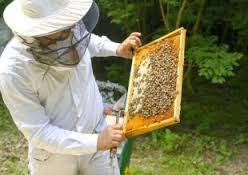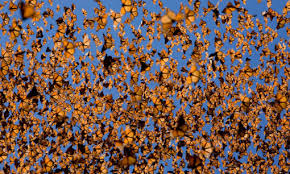David talks with Canadian pesticide activist Sheryl McCumsey about Roundup, other pesticides, agricultural practices, the influence of the chemical industry, and GMOs. Download this episode (right click and save)
Agustina Larrea – ‘Experts call Latin America ‘the world’s scrapyard for pesticides’
Although agrochemical products, pesticides and genetically modified crops are today part of everyday life for those who live in the countryside, they are relatively new in Argentina. Very few people, apart from enviromental activists, question their use. Yet the consequences — in both the short and the long term — of their impact on the health of those living near …
Joseph Alton – The Coming Bee-pocalypse? Collateral Damage of Mosquito Spraying
Everyone should support the humble bee. It’s thought that every third bite of food we take is there because of pollination by bees. Honey, when raw and unprocessed, may even be used as a wound covering for burns and other injuries due to its antibiotic effect. Yet bees are in big trouble, and we still don’t know all the reasons …
Warrior Connection – 08.28.16
The August 28th edition of Warrior Connection was a discussion about the health effects and effects on learning of pesticide and other toxic compound exposures with Dr / Professor Ann Lopez. Known and suspected previous and current pesticides hazards and haz mat issues are affecting tens of thousands of military and civilians and dependents across our nation and wherever US …
Dave Hunter, Jill Lightner – The Planet’s Food Supply Could Be Saved By a Kind of Bee You Probably Have Never Heard Of
The following is an excerpt from the new bookMason Bee Revolution: How the Hardest Working Bee Can Save the World One Backyard at a Time [4] by Dave Hunter and Jill Lightner (Mountaineers Books, 2016): Why Keep Gentle Bees? When people hear “beekeeping,” the image they picture is almost always of honey bee keepers in white, helmeted spacesuits fretting over their hives …
Evaggelos Vallianatos – Why Is the USDA Silencing Its Own Scientists’ Warnings About the Dangerous Effects of Pesticides?
[Editor’s note: Evidence has been mounting that the U.S. Department of Agriculture has been silencing its own bee scientists who have raised the alarm about the deadly impact that pesticides, particularly neonicotinoids, have on bees. Last month, for example, the Washington Post reported[3] the story of Jonathan Lindgren, a USDA bee scientist, who filed a whistleblower suit alleging that he was disciplined …
Bee flower choices altered by exposure to pesticides
Low levels of pesticides can impact the foraging behaviour of bumblebees on wildflowers, changing their floral preferences and hindering their ability to learn the skills needed to extract nectar and pollen, according to a study co-authored by a University of Guelph professor. The study, published March 14 in Functional Ecology, is the first to explore how pesticides may impact the ability …
Children exposed to insecticide are almost 50% more likely to get childhood cancer
Children exposed to insecticide and pesticides can be as much as 50 percent more at risk for cancer than other children, studies indicate. Data from 16 past studies comparing the link between pesticide exposure and the development of childhood cancer showed that kids exposed to insecticides or pesticides indoors were 43 percent more likely to have lymphoma and 47 percent more likely to have …
JEFFREY ST. CLAIR & ALEXANDER COCKBURN – A Secret History of the Monarch: How the Biotech Industry Conspired to Knock Off One of the World’s Rarest Butterflies
On May 20 1999, Nature magazine sounded what might have been the death knell of the biotech food industry. A short paper in the respected British science magazine by John Losey, an assistant professor of entomology at Cornell University, reported the ominous results of his laboratory study on the effects of pollen from genetically modified corn on the Monarch butterfly. Losey found …
Megan Boyle – AN IMPORTANT NEW REASON TO KEEP PESTICIDES AWAY FROM CHILDREN
Despite major improvements in treatment and survival, children’s cancer rates are rising in the United States, leaving parents and scientists alike searching for evidence of what’s behind the trend. A new report sheds light into one avoidable risk: household pesticides. Children exposed to insecticides inside their homes have a 47 percent higher risk of developing certain cancers in childhood, according to the …









